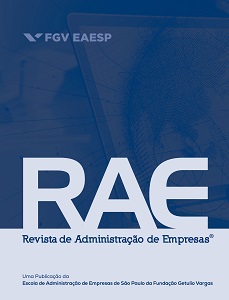Strategic shift of developing economies to production and industrialization: The role of informal institutions
Main Article Content
Abstract
Developing economies (DEs) in the Global South account for a significant amount of consumption than production. A continuation of this trend portrays persistent under-development of the nations in these economies, and it also highlights a challenging task for actualizing the United Nation’s year 2030 goal of a sustainable developed world. The Management and Organization Studies literature abound with explanations about the roles of formal institutions for developing the production capacities and industrialization of economies. Yet, these studies are dominated in US-led Global North. Meanwhile, explanations about how informal institutions in general, and, in particular, formal institutions proposed by Global South developing economies, function to enable and advance production and (re)industrialization has received limited attention. This paper doubles as a research note and a call for papers for a special issue to contribute to the emerging discourse on the strategic shift of developing economies to production through a deeper understanding of the role of informal institutions in economic development.
Downloads
Metrics
Article Details
A RAE compromete-se a contribuir com a proteção dos direitos intelectuais do autor. Nesse sentido:
- adota a licença Creative Commoms BY (CC-BY) em todos os textos que publica, exceto quando houver indicação de específicos detentores dos direitos autorais e patrimoniais;
- adota software de detecção de similaridades;
- adota ações de combate ao plagio e má conduta ética, alinhada às diretrizes do Committee on Publication Ethics (COPE)
References
Acemoglu, D. & Robinson, J. (2013). Why nations fail: The origins of power, prosperity and poverty. Profile Books.
Alcadipani, R., Khan, F. R., Gantman, E., & Nkomo, S. (2012). Southern voices in management and organization knowledge. Organization, 19(2), 131-143. https://doi.org/10.1177/1350508411431910
Beugelsdijk, S., & Klasing, M. J. (2016). Diversity and trust: The role of shared values. Journal of Comparative Economics, 44(3), 522– 540. https://doi.org/10.1016/j.jce.2015.10.014
Beugelsdijk, S., Klasing, M. J., & Milionis, P. (2019). Value diversity and regional economic development. The Scandinavian Journal of Economics, 121(1), 153– 181. https://doi.org/10.1111/sjoe.12253
Bhambra, G. K. (2020). Colonial global economy: towards a theoretical reorientation of political economy. Review of International Political Economy, 28(2), 307-322. https://doi.org/10.1080/09692290.2020.1830831
Brankov, T., Matkovski, B., Jeremić, M. & Đurić, I. (2021). Food Self-Sufficiency of the SEE Countries; Is the Region Prepared for a Future Crisis? Sustainability, 13(16), 8747. https://doi.org/10.3390/su13168747
Calabrese, L., & Tang, X. (2022). Economic transformation in Africa: What is the role of Chinese firms? Journal of International Development, 1– 22. https://doi.org/10.1002/jid.3664
Chang, H. J. & Andreoni, A. (2021). Bringing production back into development. European Journal of Development Research, 33, 165 – 178. https://doi.org/10.1057/s41287-021-00359-3
Cortinovis, N., Xiao, J., Boschma, R., & van Oort, F. G. (2017). Quality of government and social capital as drivers of regional diversification in Europe. Journal of Economic Geography, 17(6), 1179– 1208. https://doi.org/10.1093/jeg/lbx001
De Soysa, I. & Jutting, J. (2006). Informal institutions and development: Think local, act global? International Seminar, OECD Development Centre and Development Assistance Committee – Network on Governance.
Faria, A. Co-production of management knowledge in/from emerging countries and societies. RAE - Revista de Administracao de Empresas, 63 (1), e2021–0621, 2023. https://doi.org/10.1590/S0034-759020230108x
Feldman, M., Hadjimichael, T., & Lanahan, L. (2016). The logic of economic development: a definition and model for investment. Environment and Planning C: Government and Policy, 34, 5 – 21. https://doi.org/10.1177/0263774X15614653
Furtado, C. (1964). Development and underdevelopment. University of California Press.
Gruss, B. & Nabar, M. (2017). Emerging Markets and Developing Economies: Sustaining Growth in a Less Supportive External Environment. IMF Blog: Insights and Analysis on Economics and Finance. https://www.imf.org/en/Blogs/Articles/2017/04/12/emergingmarketsanddevelopingeconomiessustaininggrowthinalesssupportiveexternalenvironment
Habib, Z., & Huque, A. S. (Eds.). (2021). Handbook of Development Policy. Edward Elgar Publishing.
Hickel, J., Dorninger, C., Wieland, H., & Suwandi, I. (2022). Imperialist appropriation in the world economy: Drain from the global South through unequal exchange, 1990–2015. Global Environmental Change, 73, 102467. https://doi.org/10.1016/j.gloenvcha.2022.102467
Ibidunni, A. S., Ufua, D., E. Okorie, U. E. & Kehinde, B. E. (2019). Labour Productivity in Agricultural Sector of Sub Sahara Africa (2010 – 2017): A Data Envelopment and Panel Regression Approach. African Journal of Economics and Management Studies, 11(2), 207-232. https://doi.org/10.1108/AJEMS-02-2019-0083
Jammulamadaka, N., Faria, A., Jack, G., & Ruggunan, S. (2021). Decolonising management and organisational knowledge (MOK): Praxistical theorising for potential worlds. Organization, 28(5), 717-740. https://doi.org/10.1177/13505084211020463
Khanna, T. & Pelepu, K. G. (2010). Winning in emerging markets: A road map for strategy and execution. NHRD Network Journal, 3(3), 75–75. https://doi.org/10.1177/0974173920100316
Kruse, H., Mensah, E., Sen, K., & De Vries, G. (2022). A manufacturing (Re) naissance? Industrialization in the developing world. IMF Economic Review, https://doi.org/10.1057/s41308-022-00183-7
Matthess, M. & Kunkel, S. (2020). Structural change and digitalization in developing countries: Conceptually linking the two transformations. Technology in Society, 63, 101428. https://doi.org/10.1016/j.techsoc.2020.101428
Ndlovu-Gatsheni, S. J. (2020). Decolonization, development and knowledge in Africa: Turning over a new leaf. Routledge.
Nkomo, S. M. (2015). Challenges for management and business education in a “developmental” state: The case of South Africa. Academy of Management Learning & Education, 14(2), 242-258. https://doi.org/10.5465/amle.2014.0323
Pieterse, J. N. (2021). Twenty-first-century horizons of development. In: Handbook of Development Policy (pp. 25-34). Edward Elgar Publishing.
Pochmann, M. (2021). O neocolonialismo à espreita: Mudanças estruturais na sociedade brasileira. Edições Sesc.
Rodriguez-Pose, A. (March, 2020). Institutions and the fortunes of territories. Regional Science Policy and Practice. https://doi.org/10.1111/rsp3.12277
Rodrik, D., Subramanian, A., & Trebbi, F. (2004). Institutions rule: The primacy of institutions over geography and integration in economic development. Journal of Economic Growth, 9(2), 131– 165. https://doi.org/10.1023/B:JOEG.0000031425.72248.85
Santos, T. D. (1970). The structure of dependence. American Economic Review, 60(2), 231-236. https://www.jstor.org/stable/1815811
Shirley, M. M. (2005). Institutions and development. In Handbook of new institutional economics, C. Menard and M. M. Shirley (eds.). Springer.
Wanderley, S., & Barros, A. (2019). Decoloniality, geopolitics of knowledge and historic turn: Towards a Latin American agenda. Management & Organizational History, 14(1), 79-97. https://doi.org/10.1080/17449359.2018.1431551
WorldData (2022). Developing Economies. https://www.worlddata.info/developing-countries.php
Zhang, L. (2011). Is industrialization still a viable development strategy for developing countries under climate change? Climate Policy, 11(4), 1159–1176. https://doi.org/10.1080/14693062.2011.579263







